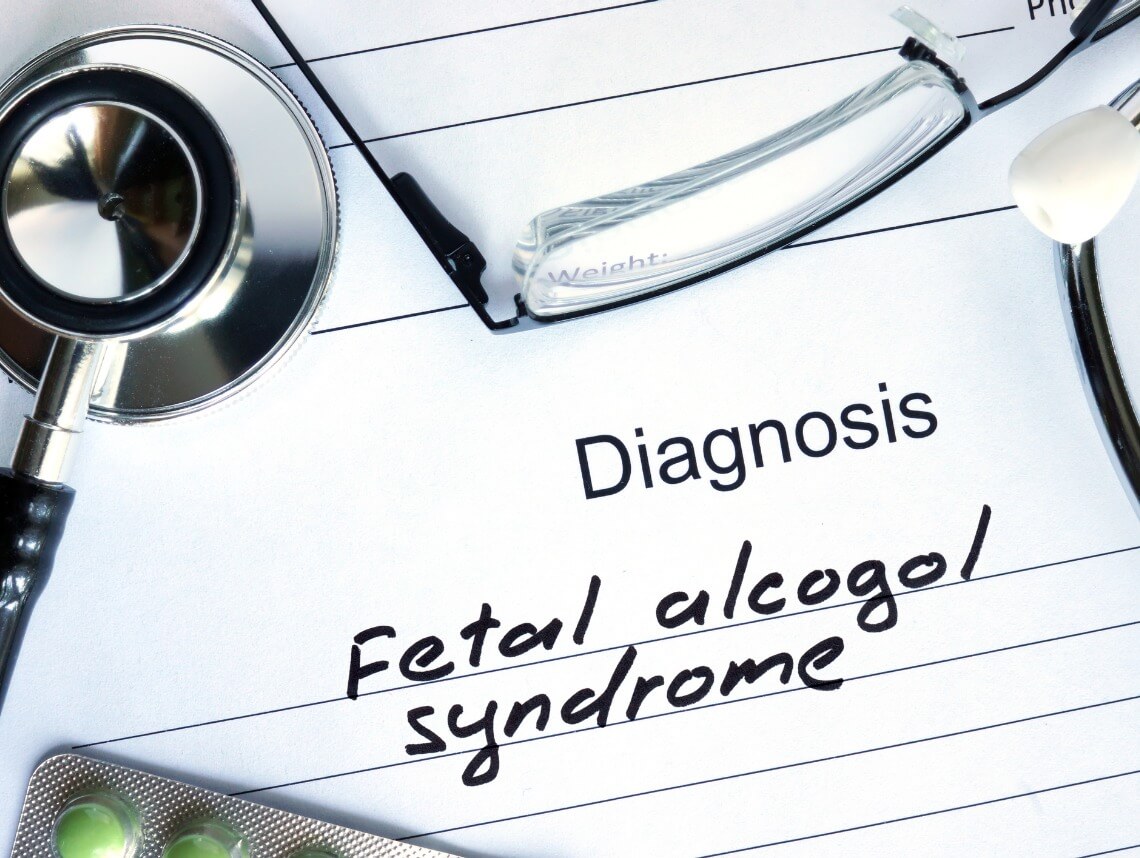When it comes to pregnancy, there are things that are outside of the mother’s control, such as certain congenital conditions. However, there are instances when the mother’s choices during pregnancy have a direct, harmful effect on the child. This is the case with Fetal Alcohol Syndrome.
What is Fetal Alcohol Syndrome?
Fetal Alcohol Syndrome (FAS) is a condition wherein the baby’s brain is damaged due to the mother’s consumption of alcohol throughout the pregnancy. As a result, the baby is born with cognitive disabilities and experiences growth issues and intellectual impairment. Defects caused by FAS are not reversible.
The severity of the condition can vary with a range of complications. A group of conditions, also known as Fetal Alcohol Spectrum Disorder (FASD) includes the following symptoms:
- Abnormal facial features
- Low body weight
- Difficulty suckling while nursing or eating
- Sleep disruptions
- Attention disorder
- Speech delays
- Behavioral problems
- Learning disabilities
- Cardiac issues
- Kidney issues
- Poor vision or hearing
- Poor coordination
- Poor memory
- Lack of social skills
- Hyperactivity
- Recurring ear infections
Causes of Fetal Alcohol Syndrome
As the name implies, Fetal Alcohol Syndrome is caused by exposure to alcoholic beverages while the fetus is developing in the mother’s uterus. A certain threshold that causes the condition is unknown.
Fetal Alcohol Syndrome Risk Factors
The more alcohol a pregnant woman drinks, the more harm she’ll cause to her baby. The damage could occur even before the woman realizes that she’s pregnant. In the womb, a baby does not have a fully developed liver that can process or break down alcohol, so it can easily get to and damage the baby’s other organs. Therefore, if you’re thinking of having a child or if there’s a possibility you might be pregnant, cease all alcohol consumption immediately.
Signs of Fetal Alcohol Syndrome
Typically, the pediatrician will look for common signs of the disorder, such as:
- Smaller than normal head
- Low body weight
- A smooth ridge between the baby’s upper lip and nose
- An unusually thin upper lip
- Close-set eyes
- Small eye openings
- Abnormal brain scans
- Central nervous system issues
Diagnosis of Fetal Alcohol Syndrome
Doctors cannot diagnose FAS before a baby is born but can assess the health of the mother and baby during pregnancy. The doctor may ask questions regarding the mother’s use of alcohol during pregnancy.
Treatment for Fetal Alcohol Syndrome
There is no cure for FASD since the brain damage caused by exposure to alcohol is permanent. Therefore, the child will require caregiving for his or her entire life.
The pediatrician may prescribe medications to alleviate some symptoms, and the child may benefit from speech and occupational therapy.
Caring for a Child With FASD
Caring for a child with FASD is challenging. So much so that we recommend joining a support group or regular appointments with a counselor who can help you deal with the emotional toll caregiving can bring.
Practical solutions you can apply to help yourself and a child with Fetal Alcohol Syndrome, include the following:
- Enlist a family member to assist with caregiving.
- When settling your baby to sleep, block out all disruptive noises.
- Feed your baby in a relatively quiet space.
- Do not drink alcohol if you’re breastfeeding.
- Ensure a predictable daily routine.
- Enlist help from your child’s school. Be aware that the child may need special education.
- Engage your child in fun activities at home, such as reading books out loud or playing games.
- Talk to your child with simple words and ask them to repeat the words back to you.
- If you’re taking your child to a new place, talk to them about where you’re going and what they can expect.
- Be aware that your child may get upset easily.
- Use rewards to reinforce acceptable behavior
Children with FASD may also have difficulty eating. If your child only wants to eat small amounts of food at a time, feed him or her only small amounts and attempt a feeding again later. Once you figure out the child’s preferred eating schedule, tailor small, regular meals around it. Also, make sure to feed your child healthy foods to ensure the best development possible.
Complications of Fetal Alcohol Syndrome
Some of the behavioral problems may develop into Attention Deficit Hyperactive Disorder (ADHD). Additionally, children with FASD have a higher likelihood of developing mental health issues, such as depression or anxiety, or grow up to have a substance abuse problem.
Prevention of Fetal Alcohol Syndrome
The only way to prevent FASD is to avoid alcohol completely if you’re pregnant, thinking of having a baby, think you may be pregnant, or if you practice unprotected sex. No amount of alcohol should be considered safe. Don’t take the risk by justifying “just a little bit” or “just this time”. No amount of alcohol consumption during pregnancy is safe.
Contact Sonas for Pediatric Home Care Services
If you are a caregiver for a child with Fetal Alcohol Syndrome, let us help you. At Sonas Home Health Care, we have an entire team of experienced caregivers to ensure the wellbeing of your baby.
If you are considering pediatric home health care services in Florida, contact the caring staff at Sonas Home Health Care. Call today (888) 592-5855.
This blog was reviewed by Jillian Miller BSN, RN — Director of Nursing for Sonas Home Health Care’s Tampa Bay market — for clinical accuracy. Jillian Miller has been a nurse for 16 years — working primarily in pediatrics. She believes the best part of working with the pediatric population is when you see smiles from clients when you first enter the room. She loves seeing the difference you can make in families’ lives while providing the best care possible for them.

